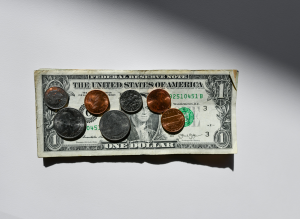Everyone has different spending habits. Some people love shopping and spending money, while others are more frugal and conservative with money. These spending habits reflect someone’s feelings, behaviors, emotions, and personality.
Many people don’t even realize they have particular spending habits until someone else points them out. However, if you psychoanalyze your spending habits, look for underlying behavioral patterns influencing your purchasing decisions.
These behavioral patterns often stem from past experiences with money, such as whether you grew up in a wealthy or low-income family. That can significantly influence how you think about the value and concept of money. Once you understand this, you will find ways to overcome these influences and spend money healthier and more disciplined.
Personality Overview: Saving Money vs Spending Money
What are the specific traits and experiences that cause someone to save money and spend money? Let’s explore each one in greater detail.
Spending Money
Compulsive shoppers usually succumb to discounts, sales, and other reasons to spend money on things they don’t need.
Their motivation or impulse in making these purchasing decisions is usually attributed to the temporary joyous thrill they feel when they buy these items. But then, after they purchase the items, the thrill goes away fast. That causes them to want to make more purchases to get the thrill back. It almost becomes like an addiction.
Unfortunately, compulsive spending can cause you to experience more financial stress once the receipts and credit card statements with all your purchases start adding up. You begin to realize that you have spent more money than you can afford, especially if you don’t have enough money to pay your bills and purchase necessities like food and rent.
Compulsive shoppers can develop this personality for any of the following reasons:
- They grew up poor and now have money for the first time in their lives
- They suffer from depression and seek quick relief from shopping
- They feel stressed or bored and want to entertain themselves by shopping
Of course, there is nothing wrong with shopping as long as you still have enough money to pay your bills each month. However, once you start struggling with credit card debt and feel enormous regret each time you purchase something, that is when you probably have unhealthy spending habits.
How to Change Them
The first step in changing these spending habits and personality traits is admitting that you have a spending problem. If you cannot do that, it will be impossible to put in the effort needed to change those habits.
Next, you must set a strict budget by creating a list of monthly expenses. Make every effort to stick to that list, with maybe a little bit of discretionary spending allowed. The important thing is to put aside a percentage of your monthly income into savings. That will teach you to develop the habit of saving rather than spending.
Another effective strategy to avoid spending too much is eliminating credit card use. Try to only pay for things in cash to reduce your impulse to overspend and shop too much.
Other ways to manage your emotions and reduce your stress and depression include regular exercise, better nutrition, and developing new hobbies that don’t require spending much money.
Saving Money
The opposite of a compulsive shopper is a frugal saver who prefers saving money over spending on non-essential items. They will still shop for essential items but look for sales and discounts to save money on those purchases. The most important thing to them is maintaining long-term financial security to prepare for emergencies and secure their futures.
Some might say saving money is a positive habit, but it can also make you the type of person who puts too many unnecessary restrictions on yourself and your purchases. The feeling or need to save money could come from negative influences or experiences in the past that shaped your personality.
Here are some of the reasons why someone becomes a frugal saver:
- Growing up without financial security will make you want to save money to establish financial security.
- Feeling uncertain about your financial future
- Witnessing or experiencing the harsh consequences of too much spending
Frugal saving could signify that you are someone who doesn’t like to take chances or risks out of fear of the consequences. It could cause you to miss out on many incredible experiences you could have otherwise had if you were more willing to spend money.
How to Change Them
You are probably a frugal saver if you save excessive money without experiencing too much joy. If that is the case, you need to work on your personality traits because saving too much like this is unhealthy. It can cause you to alienate those around you and make you live an unhappy lifestyle.
The good news is that you don’t have to give up saving money entirely. The remedy to over-saving is balancing your spending and saving habits by creating a budget with a spending limit. It is similar to the remedy for avoiding overspending, except here you will allow yourself some spending money to enjoy occasional non-essential joys, such as restaurant dining or new product purchases.
It also helps to have someone in your life who will encourage you to take healthy spending risks with your money. Just make sure they don’t try to get you to spend too much money because you don’t want your personality to do a complete 180-degree turn.
Create a budget and learn to balance your spending and saving accordingly. Then, embrace the thrill and joy you feel from allowing yourself to spend money on non-essentials occasionally.
Conclusion
Your spending habits will tell you a lot about your personality. If you spend too much, it usually means you are too impulsive and looking for quick thrills to mitigate feelings of depression and anxiety. If you save too much, it usually means you are too scared to take risks out of fear of financial insecurity or instability.
Overcoming lousy spending habits will require you to examine your personality and realize you have a problem, whether you spend too much or not enough. Then, implement strategies to change those habits for the better.
Once you experience the positive benefits of these changes, your personality regarding spending will gradually change. Maintaining your new and healthier spending habits will be easier at that point.






